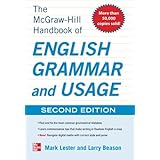wha: Associated Words
Words described by wha & Words describing wha
- kensnoun«
- whanoun«
- scotsnoun adj«
- wadnoun verb«
- chielnoun«
- is'tadj«
- aneadj«
- chungnoun«
- cafenoun«
- strutsnoun verb«
- jongnoun«
- cannanoun«
- kennoun«
- meknoun«
- weelnoun«
- gatnoun«
- dongnoun verb«
- bideverb«
- lassnoun«
- maknoun«
- resolutionnoun«
- swaysnoun verb«
- lassienoun«
- leenoun adj«
- boutnoun«
- hesnoun«
- durstnoun«
- monnoun«
- ne'eradv«
- knownoun verb«
- waldnoun«
- stationnoun verb«
- hoenoun verb«
- ladnoun«
- franchisesnoun verb«
- kentnoun«
- hong«
- cognizancenoun«
- e'eradv«
- folksnoun«
- ancenoun«
- teamsnoun verb«
- folknoun«
- deynoun«
- synenoun«
- changnoun«
- knowsnoun verb«
- radionoun verb adj«
- guessnoun verb«
- datnoun«
- wondernoun verb«
- darenoun verb«
- demnoun«
- sleepsnoun verb«
- hearverb«
- caresnoun verb«
- matenoun verb«
- seenoun verb«
- resolutionsnoun«
- chapsnoun verb«
- exactlyadv«
- happenverb«
- youngnoun adj«
- gurunoun«
- mannoun verb«
- daresnoun verb«
- forgotverb«
- desertsnoun verb«
- matternoun verb«
- resnoun«
- forgetverb«
- franchisenoun verb«
- understandverb«
- learnverb«
- camnoun«
- those«
- detentionnoun«
- carenoun verb«
- foldedverb«
- congregationnoun«
- moonnoun verb«
- kimnoun«
- decideverb«
- betrayedverb«
- formernoun adj«
- drudgenoun verb«
- fournoun adj«
- disnoun«
- looknoun verb«
- sailnoun verb«
- askingnoun verb«
- likesnoun verb«
- knowingnoun verb adj«
- darnoun«
- nownoun adv«
- hastnoun«
- consideringverb«
- clubsnoun verb«
- outnoun verb adj adv«
- lovesnoun verb«
- mennoun«
- dancedverb«
- askverb«
- sitsverb«
- daughternoun«
- playersnoun«
- rememberverb«
- metverb«
- mindnoun verb«
- soonadv«
- sureadj adv«
- teamnoun verb«
- knewverb«
- keepsnoun verb«
- peoplenoun verb«
- matchesnoun verb«
- tellnoun verb«
- thinksnoun verb«
- overnoun adj adv«
- prayedverb«
- peacenoun«
- seasonnoun verb«
- doingverb«
- comesnoun verb«
- personsnoun«
- deserveverb«
- herenoun adj adv«
- happensverb«
- wifenoun«
- mindsnoun verb«
- determineverb«
- marriednoun verb adj«
- womannoun«
- thinknoun verb«
- onenoun adj«
- meetingnoun verb«
- ideanoun«
- sitverb«
- considerverb«
- salnoun«
- becameverb«
- livedverb«
- firstnoun adj adv«
- madeverb adj«
- battlenoun verb«
- happenedverb«
- bodynoun verb«
- cameverb«
- beyondadv«
- listnoun verb«
- learnedverb adj«
- hathnoun«
- personnoun«
- liesnoun verb«
- wellnoun verb adj adv«
- beganverb«
- godnoun«
- liveverb adj adv«
- askedverb«
- sentnoun verb adj«
- othersnoun«
- satnoun verb«
- newadj adv«
- diedverb«
- countrynoun«
- standnoun verb«
- namenoun verb«
- neveradv«
- betweenadv«
- believeverb«
- upon«
- worldnoun adj«
- timenoun verb«
- underadj adv«
- livesnoun verb«
- cafénoun«
- shallnoun«
- enteredverb«
- bringverb«
- sawnoun verb«
- wishesnoun verb«
- neednoun verb«
- makesnoun verb«
- wantedverb adj«
- toldverb«
- hangsnoun verb«
- tookverb«
- lastnoun verb adj adv«
- wentverb«
- usedverb adj«
- openedverb adj«
- comenoun verb«
- wroteverb«
- kindnoun adj«
- makenoun verb«
- putnoun verb«
- gaveverb«
- stoodverb«
- heldverb adj«
- lednoun verb«
- playedverb adj«
- scarcelyadv«
- taughtverb«
- broughtverb«
- throughadj adv«
- thoughtnoun verb«
- seemedverb«
- beingnoun verb«
- warnoun verb«
Sharpen your Skills with the Masters
 The Only Grammar Book You'll Ever Need: A One-Stop Source for Every Writing Assignment
The Only Grammar Book You'll Ever Need: A One-Stop Source for Every Writing Assignment
 The Little Seagull Handbook with Exercises (Third Edition)
The Little Seagull Handbook with Exercises (Third Edition)
 McGraw-Hill Handbook of English Grammar and Usage, 2nd Edition
McGraw-Hill Handbook of English Grammar and Usage, 2nd Edition
 Tools of Titans: The Tactics, Routines, and Habits of Billionaires, Icons, and World-Class Performers
Tools of Titans: The Tactics, Routines, and Habits of Billionaires, Icons, and World-Class Performers
